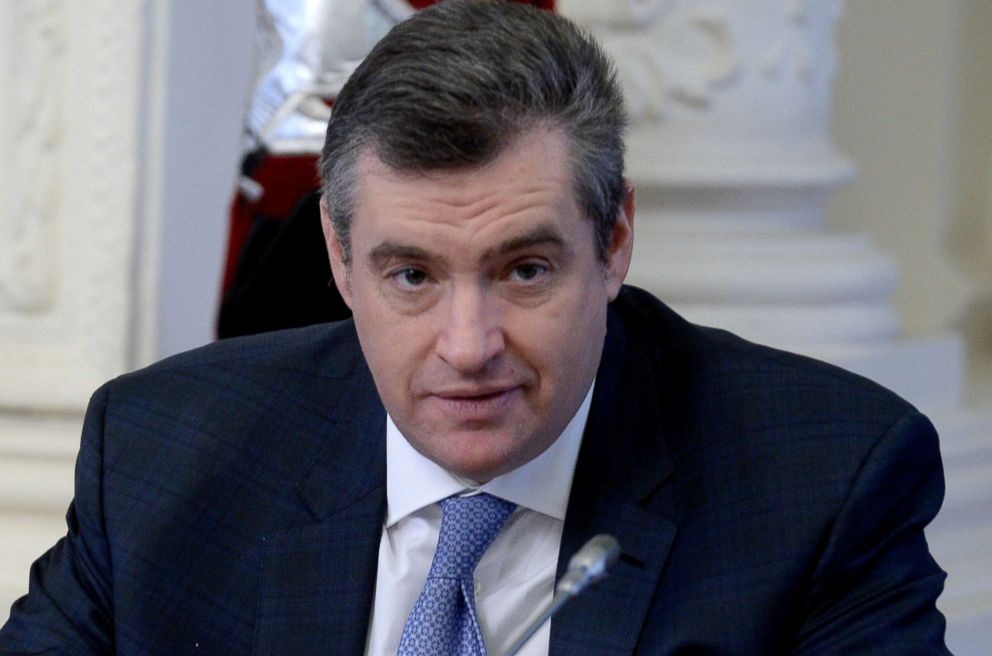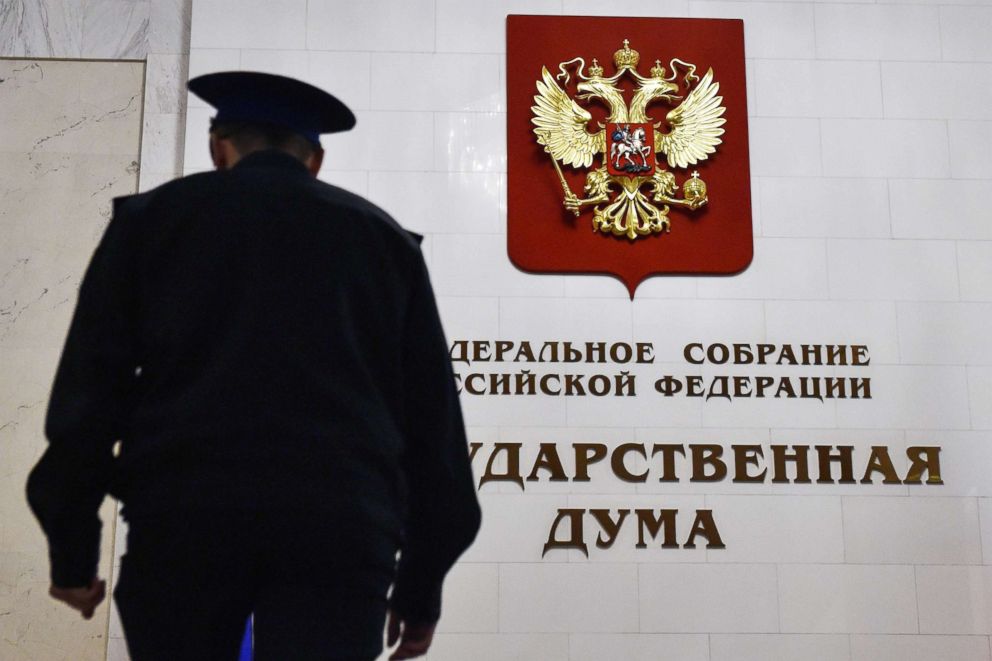Russian media boycott country's Parliament over sexual harassment claims
Top outlets protest in case that has drawn parallels with #MeToo movement.
Moscow -- Some of Russia’s top media outlets have declared a boycott on covering the country’s lower house of Parliament or have restricted their coverage there in protest after the body's ethics commission cleared a senior lawmaker of sexually harassing journalists, in a case that has drawn parallels with the #MeToo movement in the United States.
Most of Russia’s leading independent news agencies have signed onto the boycott in one form or another since the ethics commission on Thursday exonerated Leonid Slutsky, the head of the Parliament's international affairs committee, of forcing himself on three female reporters.
The large outlet, RBC, said it was withdrawing all its reporters from the Parliament, along with the liberal channels TV Rain and RTVI, as well as the influential radio station Echo of Moscow. Two newspapers, Kommersant and Vedomosti, Russia’s equivalents of the Wall Street Journal, said their journalists would avoid contact with Slutsky and members of the ethics committee.
It was a remarkable show of solidarity and throws down an unusual challenge to authorities in a country where the media is heavily controlled by the Kremlin and where sexual harassment is rarely discussed -- and frequently dismissed as a liberal Western issue.
On Thursday, the Parliament, known as the Duma, responded to the boycott by saying it would revoke the parliamentary accreditations for those journalists taking part in it.
The scandal around Slutsky began last month when three female journalists accused him of making unwanted advances on them while negotiating interviews. Daria Zhuk a producer at TV Rain, Yekaterina Kotrikadze from RTVI, and the BBC Russian Service journalist Farida Rustamova have given detailed accounts of the incidents with Slutsky that they have said occurred at different times over the past few years.

“He asked me to come without a camera,” Kotrikadze said in a broadcast on RTVI, where she is now a deputy editor. “He brought me into his office, locked the door and tried to pin me against the wall and somehow kiss and touch me. I got away and ran.”
Rustamova's encounter with Slutsky, where allegedly touched the BBC reporter and asked her to be his mistress, was captured in a sound recording.
The scandal has been growing, but authorities have largely ignored it or backed Slutsky, suggesting the allegations are a pro-Western plot. Slutsky himself has brushed off the accusations. In a Facebook post this month he wrote, "The attempt to make Slutsky a Russian Harvey Weinstein is most of all like a cheap, shoddy provocation.”
On Thursday, the ethics commission said it had “not found any violations of behavioral norms” by Slutsky and suggested that the women’s allegations had been intended to undermine Russia’s presidential election this week. In its finding published by the state news agency TASS, the commission said it had noted the women had spoken up at the same time and that they had not made them when the incidents first happened. "The sum of these facts, in the opinion of the commission members, testifies to the selectiveness, deliberateness and planned character of the actions of the claimants," it said.
RBC, announcing its boycott, said in a statement the ethics commission's decision "in essence, admits the norm of the possibility of sexual harassment toward journalists by newsmakers. We do not agree with this approach."

Contrary to what is often believed in the U.S., Russia has an influential if heavily pressured independent press. Russian state media has not joined the boycott.
The case has also highlighted how attitudes to gender and sexual harassment have become to be perceived as another front for Russian authorities in their clash with the West. Ahead of the enquiry, Russian MPs suggested that they saw the case as an occasion to resist the #MeToo movement spreading from the US and Europe. Russian officials have suggested they regard #MeToo as political correctness run amok and the product of overly liberal attitudes to gender they argue are alien to Russia.
“I don’t know if the tendency that arose in the U.S. because of the scandal with Weinstein is catching on here, but I hope not,” Valery Gartung, a member of the ethics committee was quoted by the news site Meduza before the enquiry. “You know, if you refuse to give a woman attention, she might be offended. If a man does show her attention, she could also be offended. Where’s the line? It’s a very intimate question.”
The Latvia-based Russian news site, Meduza, released a leaked audio recording of the ethics committee hearing in which the MPs appeared to attack the journalists, talking over them and implying they had invented the allegations or coordinated them to hit the election. The commission's member repeatedly asked why it had taken the women till now to make the allegations. In the recording, (also transcribed in English here) one female MP appeared to suggest Rustamova had invited Slutsky's advances.
The Kremlin has refused to comment on the scandal. President Vladimir Putin's spokesman Dmitry Peskov told reporters Thursday it was not within the area of the president's competence to discuss.
Last month, a top Kremlin aide, Vladislav Surkov, wrote an article in the Valentine's Day edition of the magazine Russian Pioneer, in which he said he believed a "matriarchal democracy" would soon dominate in the West and that it meant the "sunset of Europe."




